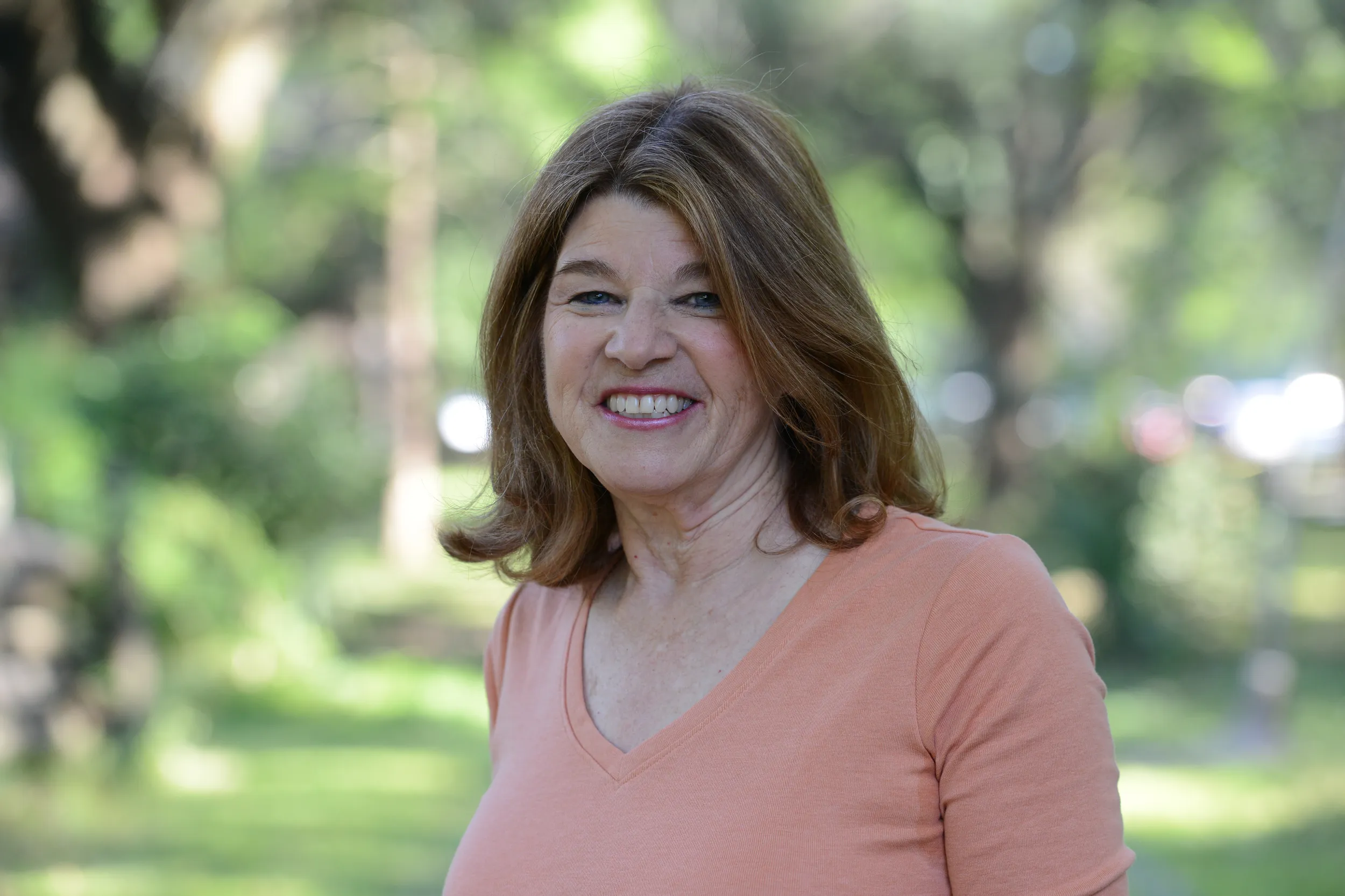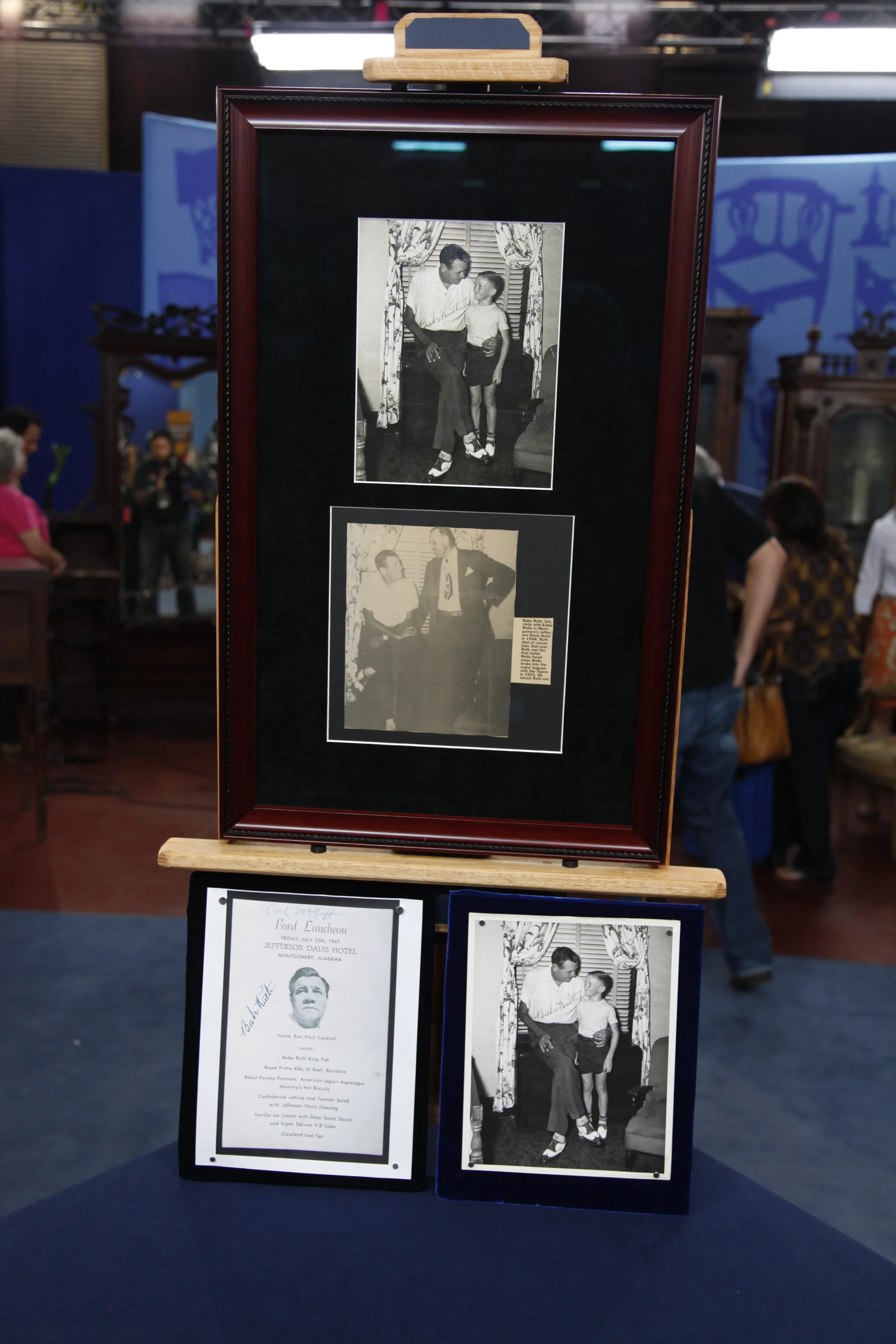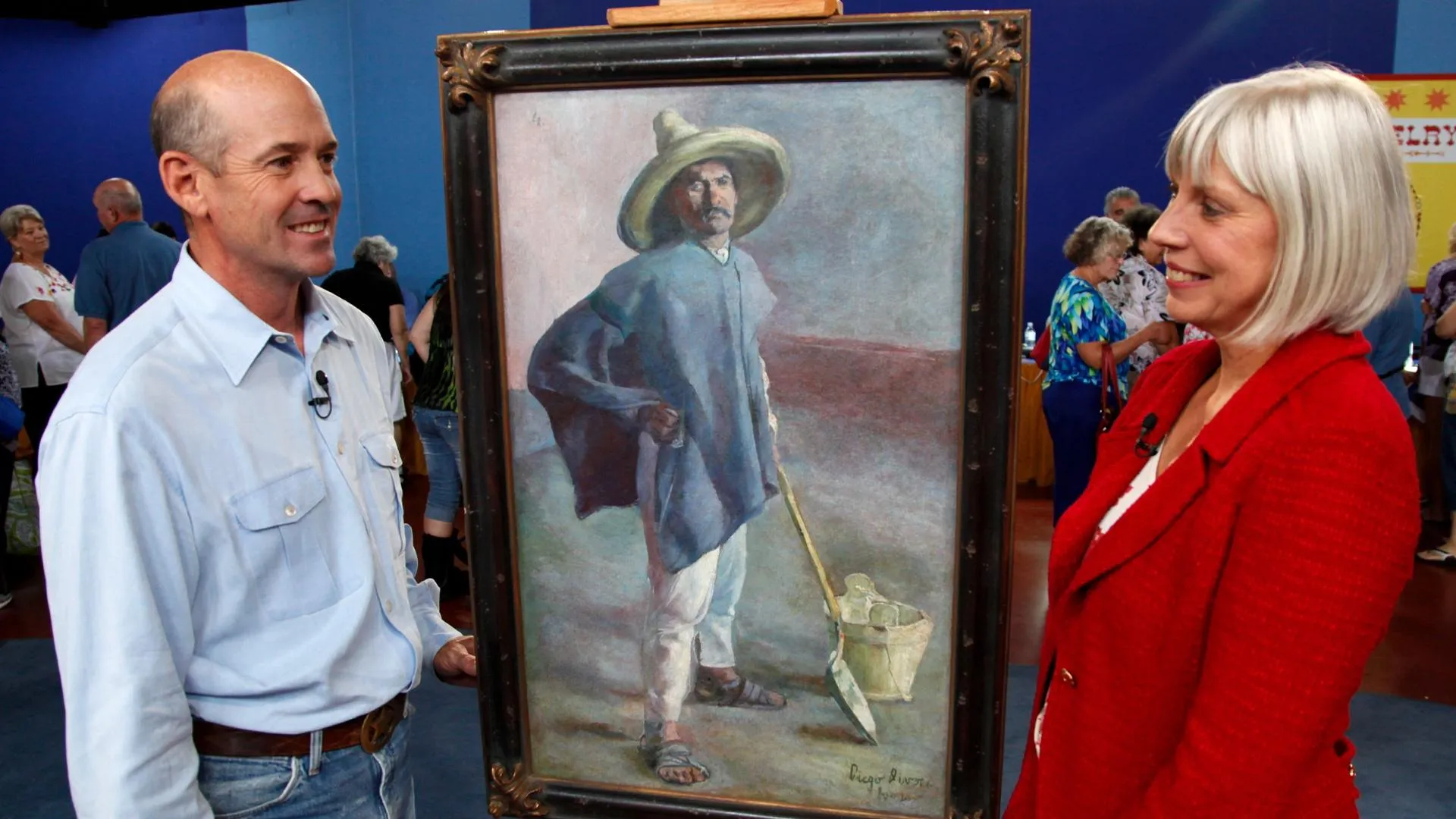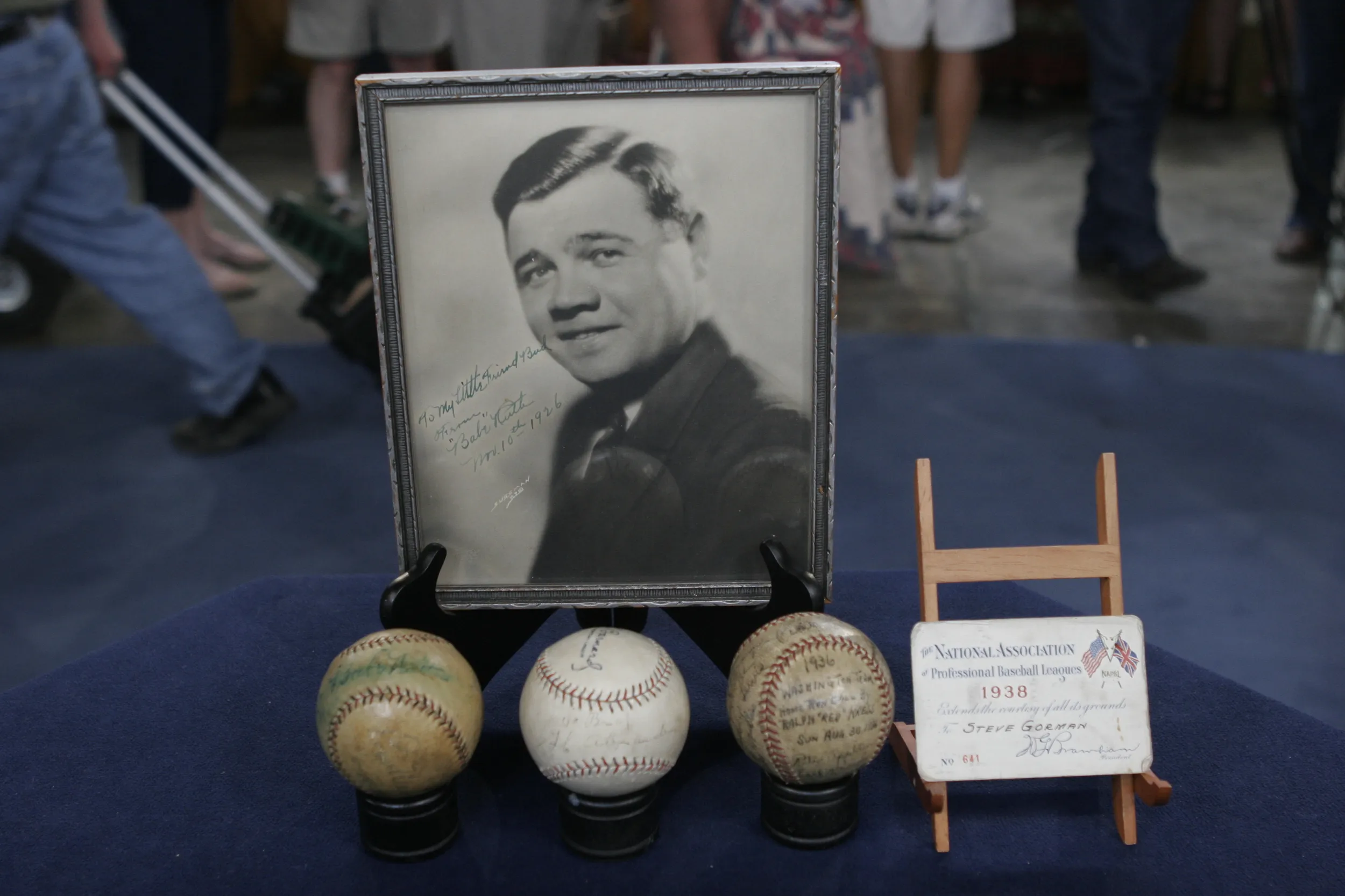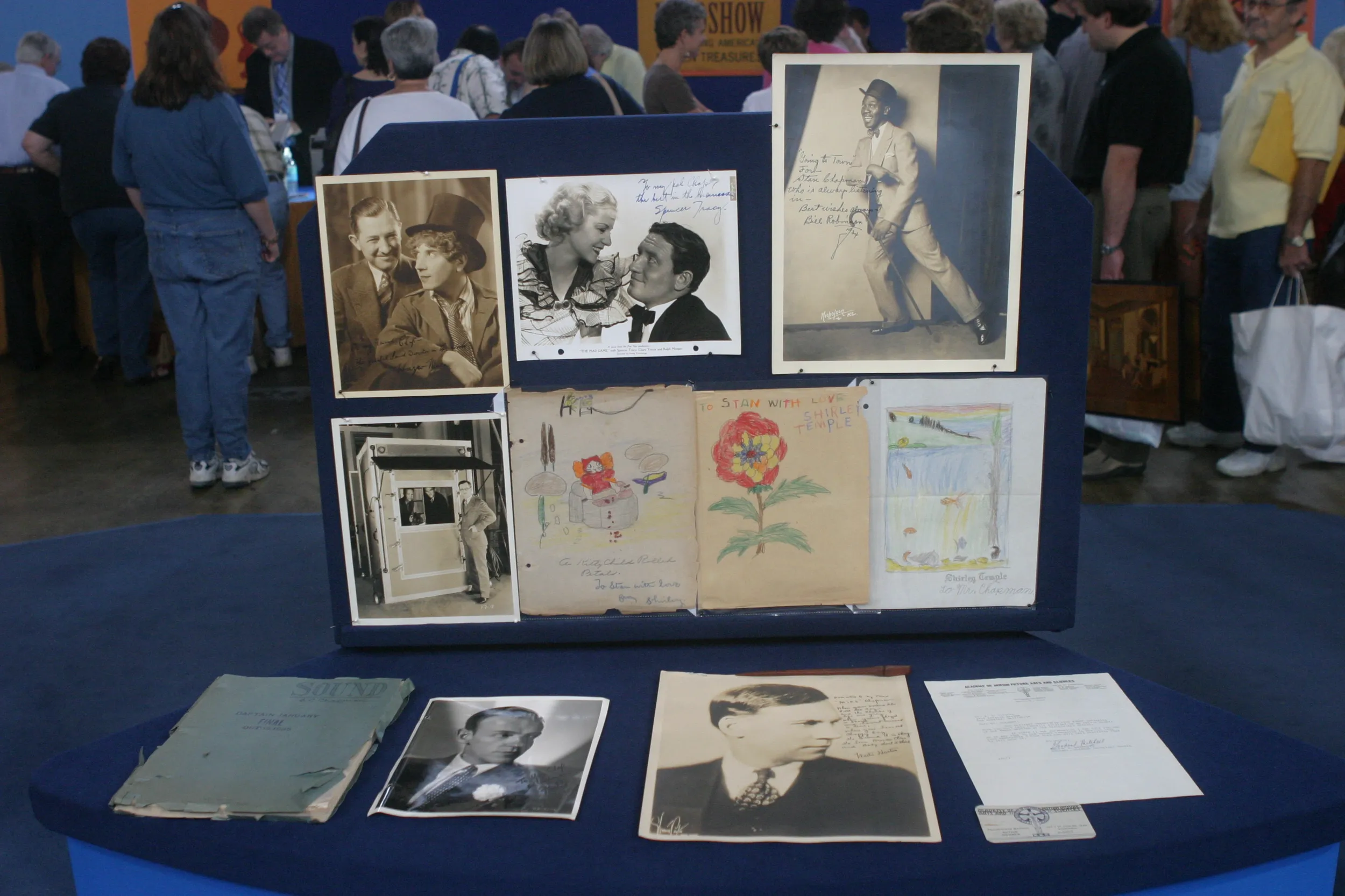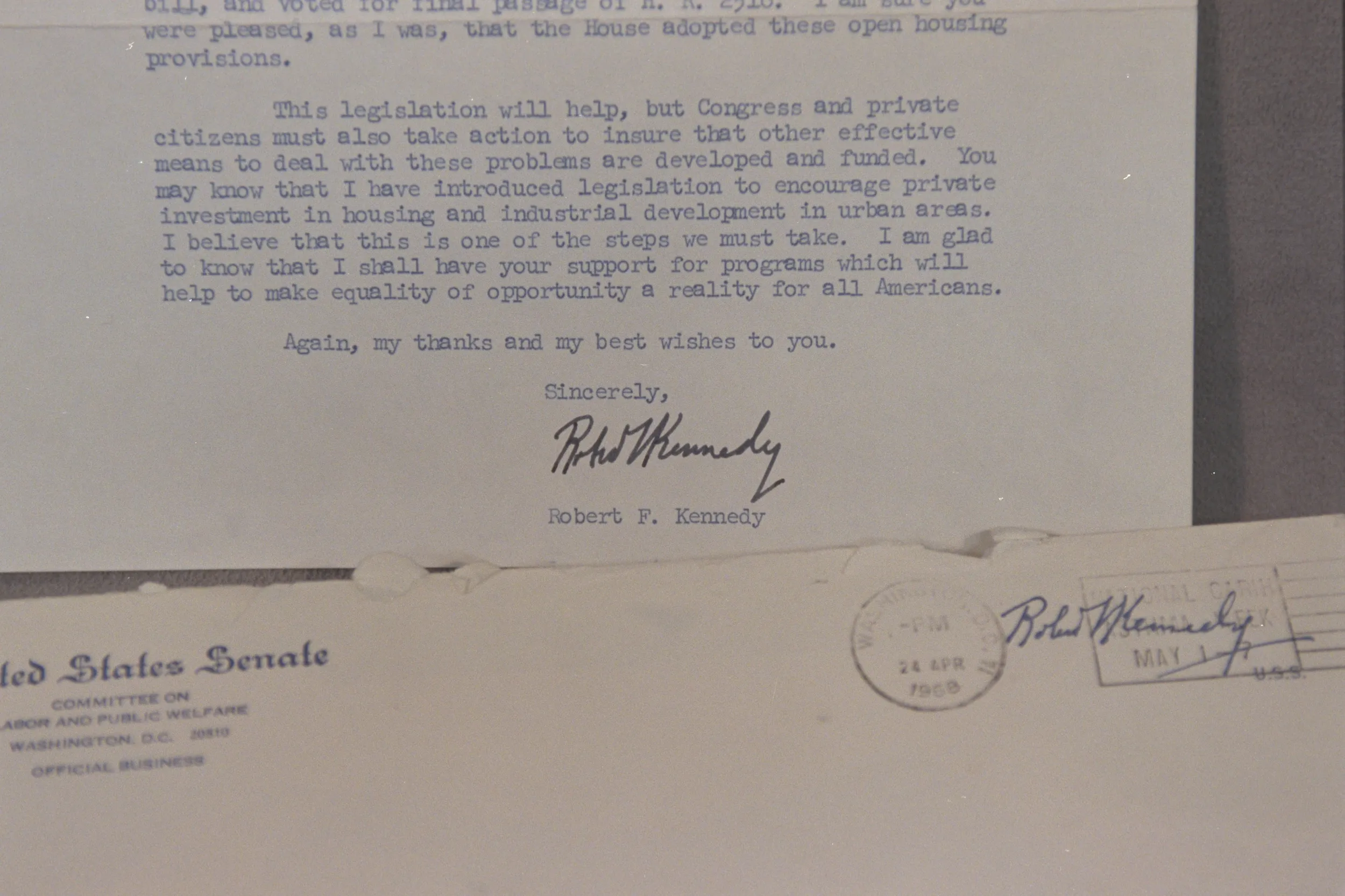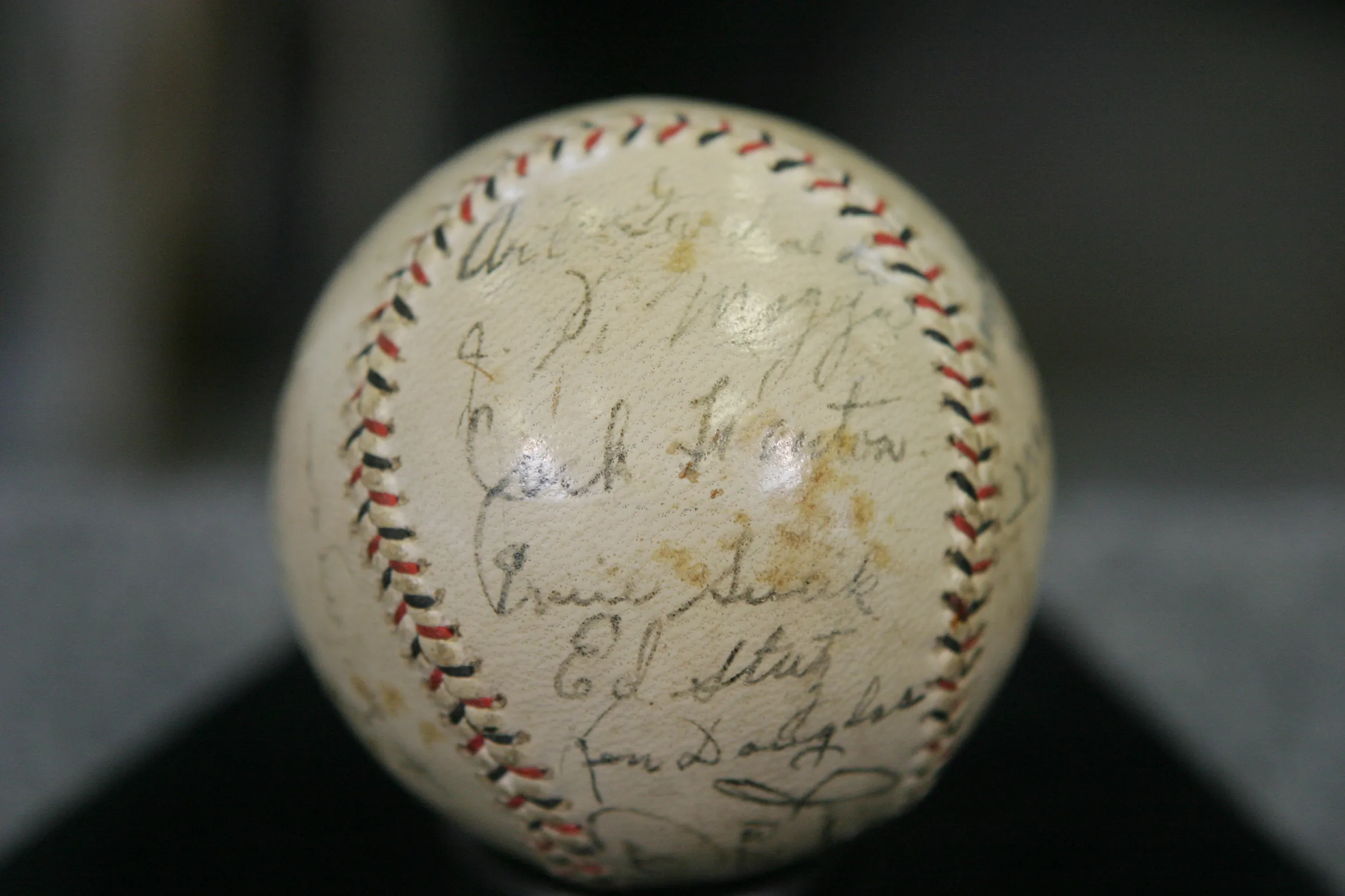GUEST: Yeah, it's actually two photographs. They're the same photograph, and they were both signed. This is my father when he was nine years old. In 1947, Babe Ruth was promoting youth baseball. And the Ford Motor Company sponsored Babe Ruth. And my father's uncle, Carl McGiffin, worked for Ford. And when they came to Montgomery, he placed a call and said, bring my dad down to the hotel. "We're going to take some photographs, and I'll get some signatures." And about two years ago, we found this menu that actually shows he visited the Jeff Davis Motel for a luncheon in 1947. There's Babe Ruth's signature. And the other signature is Carl McGiffin, which is my dad's uncle. My dad, many years later, when we got the photograph framed and everything, he gave it to me.
APPRAISER: Do you know why there were two signed photos?
GUEST: I don't know why they did two of those other than maybe Carl wanted one for his mom and dad and one for him.
APPRAISER: Does your dad remember what Babe Ruth was like meeting him?
GUEST: Yes, he said he was very nice. He remembered him smoking a cigar the whole time.
APPRAISER: And there it is.
GUEST: And there it is.
APPRAISER: Which is ironic, because the year prior, in 1946, he had been diagnosed with throat cancer.
GUEST: Throat cancer, yes.
APPRAISER: And the following year, of course, in '48, he would pass away. It is interesting, Bob, though, when people think of Babe Ruth today, they of course first think of him as a tremendous baseball player. But what a lot of people don't always remember is that he loved children. He was sent to St. Mary's Industrial School as a seven-year-old because his parents could simply not take care of him. Now, you would think, Bob, that that experience would have soured him. But he met Brother Matthias at St. Mary's Industrial School, who basically took him under his wing and helped him become the baseball player. Taught him baseball, but also taught him to exist with 800 other kids there. And in fact, he had great love for Brother Matthias. But even further, he would do anything he could for kids. He would visit hospitals, he would visit orphanages. And he would do that during his career and after his career. This is Eddie Wells here. Eddie was a southpaw pitcher and won the '32 World Series with Babe Ruth.
GUEST: I didn't know that.
APPRAISER: So it's nice to have that photo with them. But getting back to your photos, baseball signatures and a lot of athletic signatures or political signatures or entertainers' signatures, normally, their signature is worth more during their career. But he was a great icon, and he did a deal with Ford and promoted and did many signings. He's still the number one most collected athlete of all time. Collectors seek him out over and over and over again, even though his signature isn't rare. But if I were going to insure these photos, the value I would put is $5,000 apiece for these photos.
GUEST: Wow, that's amazing.
APPRAISER: Which is phenomenal. Now, you've told me of a copy of this menu, right?
GUEST: This is a copy, yes.
APPRAISER: Right, but you have the original menu?
GUEST: No, we do not.
APPRAISER: You do not. If you did have it, I could tell you it wouldn't be worth in the vicinity of these, but probably worth somewhere half if you did have it.
GUEST: Okay, thank you.
